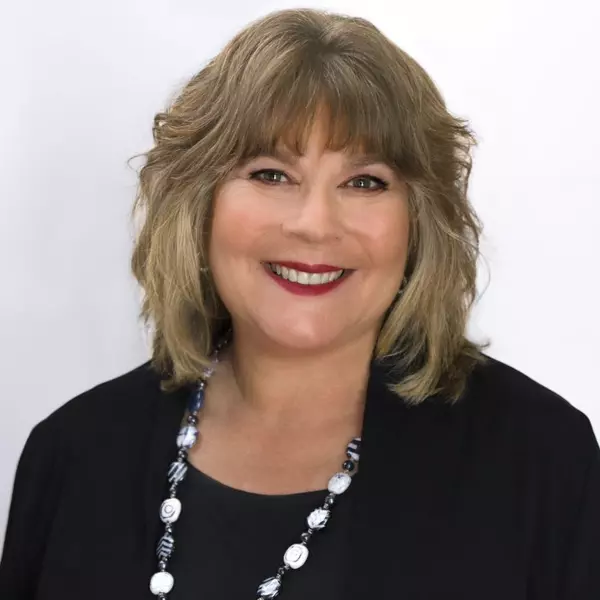Youthful Stephanie Childress to conduct SD Symphony’s Tchaikovsky Spectacular


In his 1932 Handbook of Conducting, German conductor Herman Scherchen described the orchestral conductor as a “master mind” and “almost superhuman … magician” who is “the vehicle for the manifestation of spiritual art.” Such talk won’t get you very far these days, but conductors still retain an aura that reflects their unusual role — somehow essential though producing no sound. How many of us can walk into a room of professional musicians and get them to perform a work the way we think it should be played?
British conductor Stephanie Childress, who will lead the San Diego Symphony in its annual Tchaikovsky Spectacular on Saturday, has built a promising career doing just that with orchestras as august as the London Symphony, Royal Philharmonic, Orchestre de Paris and Cleveland Orchestra. These days, she stands out less for being female and young (26) than for her distinctive path to her profession.
Raised in West London by a non-musical American father and French-Vietnamese mother, Childress decided at age four to learn violin — though not necessarily to become a violinist, or even musician. Even after years of lessons, she explained in a recent call from Cleveland, Childress sensed that playing violin was not her destiny.
“I didn’t want to be a musician, full stop. I always saw the violin as just a serious hobby. From the day I started, I knew that really, deep down in my bones, the violin was not going to be my path. It’s difficult for people to believe this,” she said.
“What’s wrong with committing so much time to something and knowing this is not for me? I don’t think it was a fruitless pursuit. I do think that my experiences, both a soloist and as an orchestral musician, have taught me much more about conducting than I could have ever imagined.”
That interest in conducting began in her mid-teens when, as a member of the U.K.’s prestigious National Youth Orchestra, she began to become intrigued by conductors’ leadership role — and quickly became the orchestra’s co-leader (at 15) and appointed leader (at 16). Watching English National Opera rehearsals of Strauss’s Der Rosenkavalier and Benjamin Britten’s Billy Budd and Death in Venice turned that interest into a career objective.
Deciding to go all in, Childress noted that the conductors she respected, including the English National Opera’s music director Edward Gardner (2007-15), had used university (non-conservatory) education to launch conducting careers. “That’s the best way one can get a theoretical foundation of music, which is really crucial to become a conductor,” Childress said. “I looked around and said, ‘Well, they did that. I might as well give it a shot’.”
But unlike Gardner and other university-route conductors, like John Eliot Gardiner, Mark Elder and Christopher Hogwood, Childress’s shot came at a mere 16 years old. Graduating from Cambridge when many undergraduates are just getting warmed up, Childress’s opportunities began proliferating — signing with one of the most distinguished global artist management agencies (HarrisonParrott), conducting world premieres (Anna Semple’s The Next Station Is Green Park), and conducting outside the U.K. (Germany, Portugal).
Just weeks after winning second prize in Paris’s La Maestra competition for female conductors, Childress led the London Symphony Orchestra — often ranked among the top five orchestras worldwide — in a globally broadcast concert. The following month, she was named St. Louis’s Symphony’s assistant conductor (she’s currently the Barcelona Symphony Orchestra’s principal guest conductor).
Though Childress is below the age at which most conductors get their first principal music directorship, she’s ready. “I believe everything comes at the right time. Maybe that’s my diplomatic answer, but it’s like a relationship. Both parties have to want it. Just because you like an orchestra or an orchestra likes you doesn’t mean it’s necessarily going to work. Timing is everything,” she said.
“Where I am now, at this moment, I’m ready for it. Definitely my desire to be a music director comes from my desire to get to know a group for a long time. I think that’s where my strengths lie. Someone who can be the figurehead of an organization and can help an organization move forward. [Classical music] needs people who are very passionate, who are willing to fight the good fights, in terms of, raising money, reaching new communities, and programming interesting things, pushing the art forward. That desire for a music directorship in me is really to be associated with a group for a long period of time and build something.”
One gets the feeling that questions about gender’s relevance to her career’s trajectory don’t thrill Childress. “There are still some biases,” she said, but added “I think it’s so much more open. Especially, post Covid, when my career was starting to flourish, I feel like opportunities for female conductors also did the same. I’m so pleased to see so many wonderful colleagues who are now taking the helms of orchestras in the States — Chloé Dufresne, who’s just been appointed in Colorado Springs.”
“But in general, I do think there is still a bit of a glass ceiling. In terms of gender equality, we still have a long way to go in the world in general, not just in my own little bubble of conducting,” she explained. “Gender equality and what it means to be a woman in a position of leadership is a topic that we’ve only really begun to scratch the surface of.”
Resistance, whether due to gender or age, doesn’t trouble Childress. “When I’m on the podium, I’m doing my own thing. Regardless of age [or gender], they’re going to be people who are not amenable to what you bring. You have to expect some degree of resistance, but also expect some people to come with you, and you know that balance, and that percentage can vary from orchestra to orchestra,” she said.
“Someone’s opinion of me, I don’t have to be burdened by it. I go and I do my own thing and share my love of music. I’d like to think that I can enable the people in front of me to perform their best, rather than simply dictate all the time. And I do think that’s how you achieve whatever definition of a successful performance might be.”
Childress’s Tchaikovsky-centered program with the San Diego Symphony in Rady Shell represented a similar kind of give and take. “I offered the pieces that I thought would fit that theme. It’s always a bit of a dialog.” Aside from stalwarts like the Romeo and Juliet overture-fantasy, and of course that perennial excuse for pyrotechnics, the 1812 Overture, there’s also — reflecting perhaps Childress’s first love, opera — selections from Tchaikovsky’s most popular opera, Eugene Onegin. Austrian pianist and Juilliard student Kiron Atom Tellian will play Chopin’s first piano concerto in E minor.
After San Diego, Childress’s calendar is busy: the Juilliard Symphony in New York in September, followed rapidly by the Bordeaux Symphony Orchestra, the Bremer (Germany) Philharmoniker, then concert leadership in Barcelona, North Carolina, Wales (U.K.), Warsaw, Helsinki, Zurich, and Berlin — and that’s just the next six months.
“Where I am right now,” Childress admits, “is just very grateful for the opportunities that have come my way. If I chat to my dad before a gig, he always tells me, ‘Be great and be grateful.’ That’s something I always try and keep in my back pocket: just do the best you can and also be grateful for the opportunities you’re given. I have an amazing job — I get to travel the world, meet all these incredible orchestras, meet so many different types of people. It’s a very privileged position. So I don’t take it for granted.”
Paul Bodine has been writing about music — from classical to pop/rock — for over 30 years for publications such as Classical Voice North America, Times of San Diego, Classical Music Daily, Orange County Register, and Milwaukee Journal Sentinel. Among the artists he’s interviewed are Joshua Bell, Herbert Blomstedt, Sarah Chang, Ivan Fischer, Bruno Canino, Christopher O’Reilly, Lindsay String Quartet, David Benoit, Laura Claycomb, Jon Nakamatsu, Paul Chihara, the Ahn Trio, Lucas Debargue, and John Thiessen.
Categories
Recent Posts










GET MORE INFORMATION


